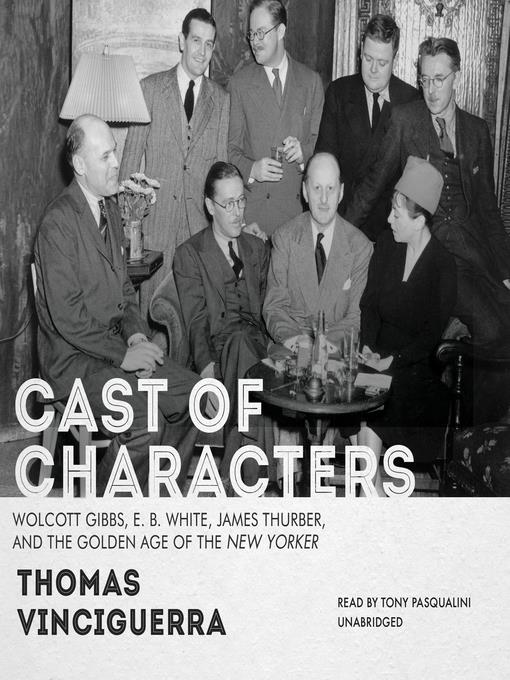
Cast of Characters
Wolcott Gibbs, E. B. White, James Thurber, and the Golden Age of the New Yorker
کتاب های مرتبط
- اطلاعات
- نقد و بررسی
- دیدگاه کاربران
نقد و بررسی

This graceful group memoir of the eccentrics and geniuses who created the NEW YORKER magazine will charm anyone who cares about the lives and times of the likes of E.B. White, Wolcott Gibbs, James Thurber, and John O'Hara. Or about Harold Ross himself, the magazine's feud with Henry Luce, and the evolution of the magazine so many have found indispensable. The material is entertaining, and, amazingly, much of it will be fresh, even to die-hard fans. Regrettably, this production is far from impeccable; Ross would have returned it marked "Fix." There are misreadings ("On first looking into Chapman's Honor"?) and mispronunciations (Wanger, Cerf, and many more), but Tony Pasqualini's apparent affection for the material and his enthusiasm and pacing make this a delightful listen anyway. B.G. © AudioFile 2016, Portland, Maine

July 27, 2015
Vinciguerra’s (Backward Ran Sentences) sprawling history of the New Yorker’s early luminaries captures the eccentricities and idiosyncrasies of its editors and writers—Wolcott Gibbs, E.B. White, and James Thurber, as well as founder Harold Ross and various other “fabled oddballs.” Created to provide “smart, urbane journalism,” the magazine quickly became noted for its sharp editing, rigorous fact-checking, and witty cartoons. Ross and Gibbs, the New Yorker’s theater critic, were chiefly responsible for its success, as Vinciguerra painstakingly demonstrates. Anecdotes about fact-checking a story on Walter Winchell or a parody of Time demonstrate how reputations were built—and undone. The most amusing sections focus on the writers’ wit, office romances, and sometimes outrageous behavior, such as Gibbs’s penchant for getting drunk before attending plays he was reviewing. There are also more serious passages, such as a discussion of WWII’s effect on the magazine’s writers, editors, and content, culminating with the landmark publication of John Hersey’s Hiroshima in its entirety in the New Yorker, before its appearance as a book. But in general, Vinciguerra’s tone is more nostalgic than elegiac, and for that reason his book, while slow-going at times, will be embraced by faithful New Yorker readers. 8 pages of illus. Agent: Glen Hartley, Writer’s Representatives.

























دیدگاه کاربران